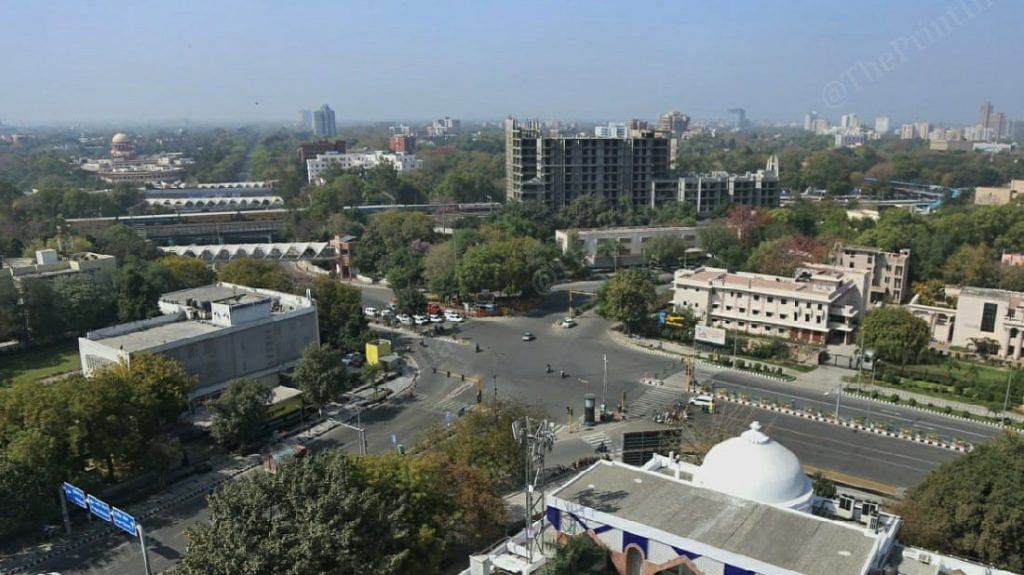New Delhi: Curfew has been imposed in Delhi to ensure strict enforcement of a lockdown aimed at limiting the spread of the highly infectious novel coronavirus.
The Delhi Police Monday said curfew passes are mandatory for inter-state travel from 24 March, which means travel between Delhi and its neighbouring areas, including Noida, Ghaziabad, Sonipat, Bahadurgarh, Jhajjar, Gurugram and Manesar, will require a curfew pass.
An exception has been made for government officials engaged in essential services, but personnel will be required to show their identity cards, said Commissioner of Police, S.N. Srivastava.
While no curfew pass is required for movement within Delhi, the police said people such as mediapersons and personnel providing essential services would be allowed on showing their ID cards.
So, what does this mean for the rest of the people? Will they be allowed to go grocery shopping? Will an individual be allowed to move from point A to B within Delhi without being stopped by the police or facing legal action?
ThePrint answers these questions.
Also read: Observe the lockdown or face strict action: Delhi CM Arvind Kejriwal
Stay home
A complete lockdown has been announced in Delhi, which means no individual will be allowed to venture out without a valid reason.
The police Sunday imposed prohibitory orders under Section 144 of the Criminal Procedure Code (CrPC) in Delhi until 31 March, banning assembly of four or more people in one place.
The orders, however, were not followed as people gathered at marketplaces in huge numbers in parts of Delhi and long traffic jams were reported from the borders, putting all of them at risk of contracting the virus.
Now, if a person is found to be violating these orders, legal action may be taken against them, the Delhi Police has warned.
Section 144 also gives police the powers to direct any person to abstain from a certain act.
“If a person, who is not in essential services, is seen travelling, he will be asked to go back home and if need be, legal action can be taken against that individual,” a senior police officer told ThePrint.
“Only people in essential services should step out. Rest should remain at home. This is the purpose of these orders and we will be enforcing them strictly from 24 March,” he added.
When asked if one’s driver or domestic help will be allowed to travel to work, the officer said, “No, these do not come under essential services. Everyone must remain indoors. If anyone is caught violating rules, they may be booked.”
Also read: R0 to zoonoses — decoding coronavirus jargon to help you understand the news better
When can one go out?
Police said trips to the market for groceries, medicines and other essentials will be allowed.
“The shops are not shut. Grocery stores, medical shops are open and people can certainly step out to go buy groceries, but they have to make sure that they do not go out in groups,” the police officer said.
“They can walk to the shop next to their house and there too they have to make sure they maintain a distance from other customers,” he added.
The Delhi Police has also posted personnel outside these stores to ensure the places do not get crowded.
Also read: Day 1 of COVID-19 lockdown in India — here’s what happened in your state
Getting a curfew pass
Private organisations engaged in essential services in Delhi will have to get curfew passes for their employees from the office of the deputy commissioner of police (DCP) of the jurisdiction concerned.
Private organisations located outside the National Capital Territory of Delhi can seek passes for employees who commute from Delhi from the office of the DCP concerned.
The passes, though, will be issued after “assessing the genuine requirements”, the police said.
“Strict checking shall be done at the border pickets and internal pickets within the city in every police station area to ensure that no gathering or movement takes place in contravention of the prohibitory orders,” the order stated.
To ensure complete compliance, patrolling on four-wheelers and bikes will be conducted by police personnel. Announcements will also be made seeking cooperation of people and informing them about the legal action that will be taken in case of a violation.
Also read: Ticking ‘time bomb’: Study predicted re-emergence of ‘SARS-like virus’ 13 years ago
